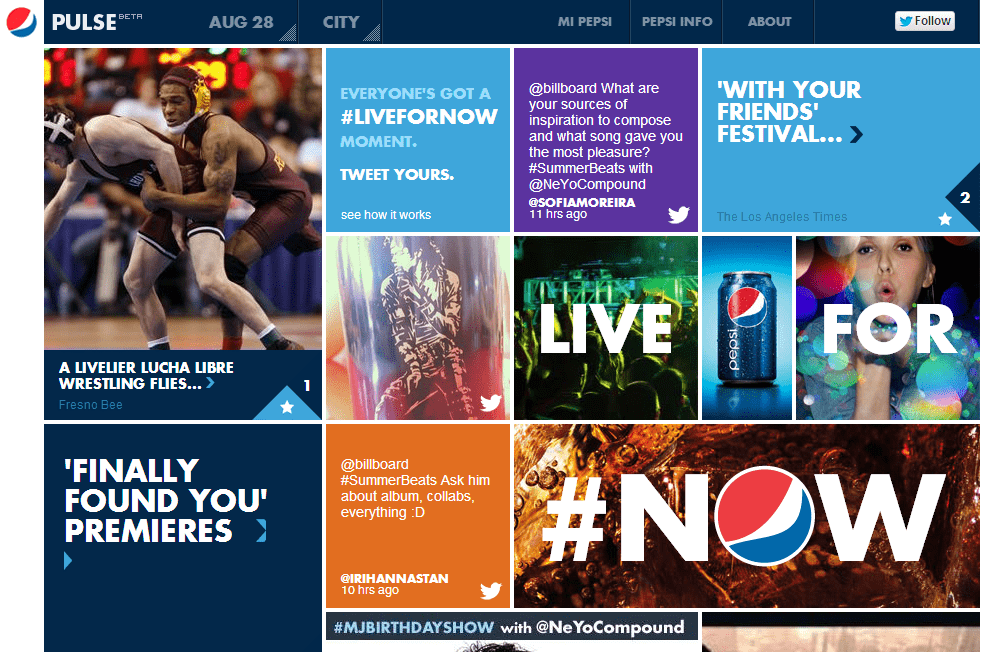

Are brand websites dead? This would seem like an odd question to ask at a time when we interact more and more with brands in the online space and when digital channels play an increasingly important role in our consumptions habits. However many factors should lead branding and marketing professionals to reconsider the place and role of the brand website in their strategy.
Digital channels indeed play an increasingly important role in our consumptions habits. In China the web is consistently cited as the most trusted source of brand information and is a key part of the purchasing process in almost every product category. But come to think of it, most of the channels that influence our purchasing behavior are not brand owned and the bulk of our interactions with brands online happen outside the brand website. One can discover a brand on a forum, get information on its Weibo page, check out its video on Youku, go over its product line on a mobile catalogue and buy its products on Taobao. Money will have flown right into the brand’s coffers without me giving the brand website a single click. New online journeys are increasingly modeled on such examples and brands must recognize this new reality.

Pepsi Global Website – Pepsi Pulse
Incorporating Brand Websites into the Digital Experience: A New PerspectiveIn the past, having the brand website as the central element of the online experience made perfect sense. It allowed brands to showcase in-depth, sophisticated content without relying on third-party platforms. However, the landscape is evolving. Facebook and Weibo, with their brand-friendly policies, are now established players, offering brands the opportunity to create highly customized, engaging pages surpassing previous capabilities.
Navigating the Role of Brand Websites in China’s Digital EcosystemThe significance of the brand website’s role is especially pronounced in China, where technical challenges like slow internet speeds and browser fragmentation make it challenging to maintain high-quality websites. Moreover, social media has become deeply ingrained in the daily habits of Chinese consumers. In fact, a staggering 23% of Chinese netizens prioritize social media as their primary source for brand information.

From a strategy perspective, a brand in China can attract via social networks, engage via video sites and convert via a T-Mall space. The brand website only needs to enter the equation when in-depth information or interaction is needed (which is admittedly still the case in many sectors). The key is to create engaging online journeys that are relevant to customer habits and consistent with brand objectives.

Pepsi China Website with Tmall
Shifting towards this vision centered on customer habits implies a change in the way brands measure the success of their online operations. Digital marketing 101 states that one of the supreme goals of a digital presence is to drive people to the website. Such a mindset was relevant back then the opportunities for digital interaction were few outside of the brand website. Now, brand interactions online no longer equates branded website and metrics should reflect the new rules of the game.
So what does this all mean? Certainly not that brands should throw their websites out the window. Instead, they should take time to think about:
All in all, while brand websites are not dead, their traditional perception as the undisputed central component of brands’ web presence is. The change may be hard but the result will be better, more fluid digital journeys and, yes, better, more relevant brand websites that focus on what matters.
A Labbrand Group Company © 2005-2024 Labbrand All rights reserved
沪ICP备17001253号-3* Will be used in accordance with our Privacy Policy
To improve your experience, we use cookies to provide social media features, offer you content that targets your particular interests, and analyse the performance of our advertising campaigns. By clicking on “Accept” you consent to all cookies. You also have the option to click “Reject” to limit the use of certain types of cookies. Please be aware that rejecting cookies may affect your website browsing experience and limit the use of some personalised features.